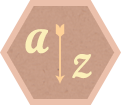the Science
~ four main areas we study ~
Relativity
Compact Objects
Gravitational Waves
Numerical Relativity
Active Research
Probing perturbative scattering with SpEC
Created on November 14, 2025
How much information can we gain by pushing numerical relativity to its limit by simulating black hole scattering encounters when one is much larger than the other or when they are far apart and only weakly interacting? Our latest preprint (led by Oliver Long) explores these extreme regions of the black-hole scattering parameter space using simulations generated using the Spectral Einstein Code (SpEC).
Binary black hole scattering with SpEC
Created on July 14, 2025
What happens when high-velocity black holes hurtle past each other in a close encounter, deflecting through spacetime but never merging? Our latest preprint (led by Oliver Long) presents the first simulations of black-hole scattering generated using the Spectral Einstein Code (SpEC).










